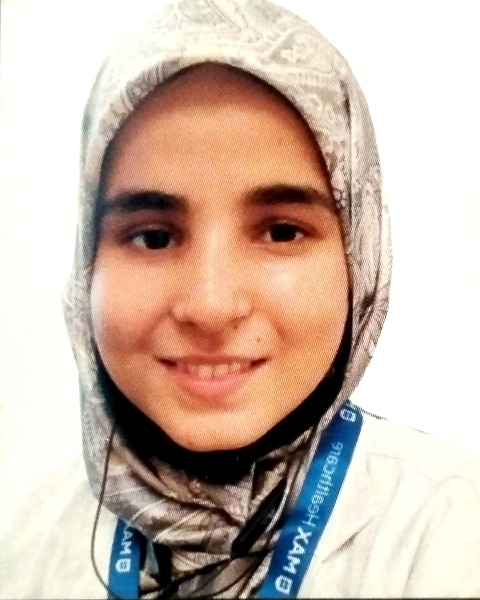Poster Presentation
Leadership, Mentoring, and Training the Next Workforce
Wednesday Poster Power Hour
WED-044 - Addressing the Healthcare Workforce Shortage: The American Rescue Plan Act scholarship Program as a Model
Wednesday, April 16, 2025
12:30 PM - 1:30 PM PST
Location: Pacific I/II, 2nd Floor
Area of Responsibility: Area VII: Leadership and Management
Subcompetencies: 1.3.4 Assess existing and available resources, policies, programs, practices, and interventions., 4.5.4 Translate findings into practice and interventions. 5.1 Identify a current or emerging health issue requiring policy, systems, or environmental
Research or Practice: Practice
Subcompetencies: 1.3.4 Assess existing and available resources, policies, programs, practices, and interventions., 4.5.4 Translate findings into practice and interventions. 5.1 Identify a current or emerging health issue requiring policy, systems, or environmental
Research or Practice: Practice

Anam Fatima, PhD (Student) (she/her/hers)
Graduate Assistant
University of Nevada Las Vegas
Las Vegas, Nevada, United States
Poster Presenter(s)
Learning Objectives:
At the end of this session, participants will be able to:
- To describe the application of public health knowledge into practice by gaining practical skills among undergraduate students.
- To analyze the role of social determinants of health in experiential learning projects of undergraduate students.
- To address the healthcare workforce shortage.
University of Nevada Las Vegas (UNLV) as an approach to fostering leadership, mentorship, and
workforce development among undergraduate students from the School of Public Health (SPH)
including Bachelor of Science in Public Health (BSPH) and Bachelor of Science in Healthcare
Administration (BSHCA) students. As part of the ARPA Nevada Health Workforce Pipeline
Grant, the program addresses the healthcare workforce shortage by supporting students pursuing
careers in health-related fields.
Detailed abstract description: Addressing healthcare workforce shortages requires innovative models that equip future professionals with leadership and practical skills. This presentation evaluates the American Rescue Plan Act (ARPA) Scholarship Program at the University of Nevada Las Vegas (UNLV), designed to develop future leaders in public health and healthcare administration. Focusing on mentorship, experiential learning, and workforce development, the program supports students pursuing Bachelor of Science in Public Health (BSPH) and Bachelor of Science in Healthcare Administration (BSHCA) degrees, while addressing healthcare workforce gaps and encouraging students to improve community health.
Participants will learn how the program promotes leadership development through hands-on experiences and mentorship opportunities. The selection process considered students’ academic performance, project feasibility, commitment to public health, and alignment with social determinants of health (SDOH), preparing them to tackle real-world challenges like substance use, behavioral health disparities, and vulnerable populations' needs.
The session will provide insights into the program's impact, evaluated through quantitative surveys and focus group discussions (FGDs). Key highlights include the cohort’s strong academic performance (average GPA: 3.59) and diverse professional interests, ranging from opioid overdose prevention using Narcan to improving healthcare access for low-income families and enhancing awareness of developmental disabilities.
The presentation will also explore the demographic composition of the cohort, where 70% of participants were female, reflecting state-level public health workforce trends. This gender balance highlights the importance of maintaining inclusive workforce development initiatives.
By collaborating with organizations like the Nevada Department of Health and Walgreens Pharmacy, the program enables students to apply academic knowledge in real-world settings. Many participants have already begun forming career pathways and preparing for future employment opportunities.
Attendees will gain practical tools to replicate similar workforce development programs and foster mentorship and experiential learning in their own institutions. Aligning students' learning experiences with real-world public health challenges ensures that the next generation is prepared to meet evolving societal needs.
Attendees will leave with strategies to:
• Implement similar scholarship models in academic settings.
• Develop mentorship programs to shape future healthcare leaders.
• Equip students with experiential learning projects that address SDOH and meet community health needs.
• Foster diverse, inclusive environments that build career pathways in public health and healthcare.
